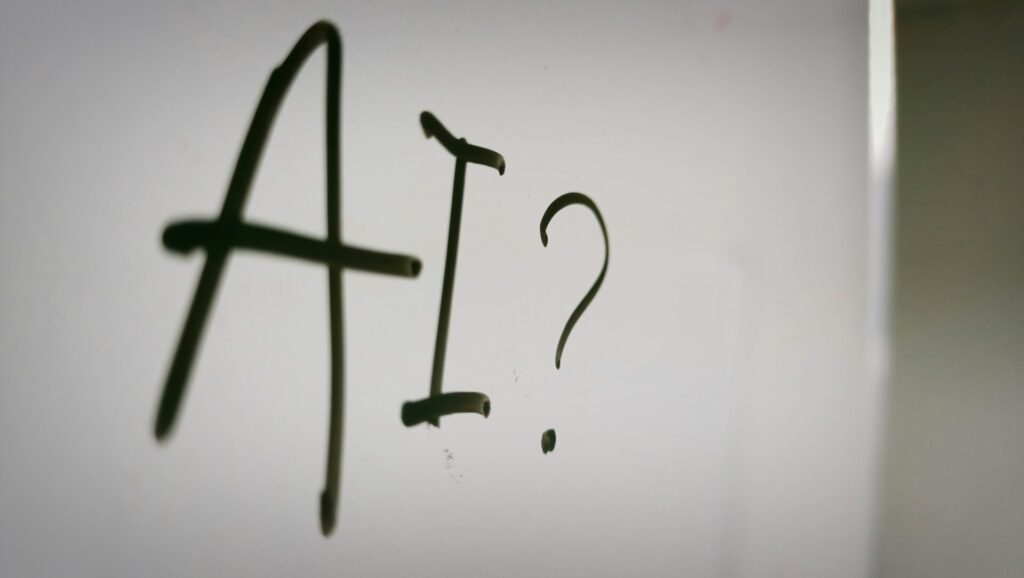Leadership, resilience, and a vision for change transcend gender, but the role of female world leaders in shaping global politics marks a pivotal shift in history. Despite facing unique challenges, women who ascend to the highest offices bring transformative leadership styles, fresh perspectives, and often redefine governance. This blog takes a closer look at 12 trailblazing women who led their nations, breaking barriers while leaving an indelible mark on history.
Whether you’re an aspiring leader or simply curious about the impact of women in political leadership, this article highlights the journeys, achievements, and legacies of some remarkable female world leaders.
Why Female Leadership Matters
Before we explore their stories, it’s important to acknowledge why female leadership matters. Representation in leadership affects policy-making, ensuring diverse and inclusive governance. Research published by the World Economic Forum also suggests that leadership diversity leads to more innovative solutions and equitable decision-making. These leaders have reimagined the highest forms of governance, paving the way for future generations; most importantly, among young female students who are deciding what to do in their lives.
Now, let’s meet some of the extraordinary women who held government’s top roles.
Twelve Inspiring Female World Leaders
Indira Gandhi (India)
India’s first female Prime Minister, Indira Gandhi, served from 1966 to 1977 and again from 1980 until her assassination in 1984. She was a formidable and controversial leader, known for her centralising policies and strong-willed governance. Her nationalisation of major banks and promotion of the Green Revolution helped make India agriculturally self-sufficient. However, her imposition of emergency rule from 1975 to 1977 led to criticism over human rights violations and authoritarianism. She was deeply involved in foreign affairs and took a strong stance in the 1971 war that led to the creation of Bangladesh. Her charisma, authority, and political acumen earned her fierce loyalty as well as fierce opposition. As one of the earliest female world leaders of the 20th century, her legacy remains complex, bold, and deeply significant.
Margaret Thatcher (United Kingdom)
Margaret Thatcher, famously dubbed the “Iron Lady,” served as the United Kingdom’s first female Prime Minister from 1979 to 1990. Her leadership was marked by significant economic reform, including widespread privatisation of state-owned industries, reduced power of trade unions, and promotion of free-market policies. She maintained a strong stance on foreign policy, notably during the Falklands War, and formed a close alliance with U.S. President Ronald Reagan. Though divisive, her influence on modern British politics was profound, shaping conservative ideology and economic strategy for decades. As one of the most influential female world leaders, she redefined expectations of leadership in a male-dominated political arena.
Angela Merkel (Germany)
Angela Merkel served as Chancellor of Germany from 2005 to 2021, making her one of the longest-serving and most respected leaders in modern European history. A trained physicist, Merkel brought analytical precision and a steady hand to her governance. She led Germany through multiple crises, including the global financial meltdown, the Eurozone debt crisis, and the refugee influx of 2015. Merkel was praised for her pragmatic and measured leadership, often being called the de facto leader of Europe. Under her guidance, Germany strengthened its economic position and global influence. Though not one for political theatrics, Merkel became a towering figure among female world leaders, often hailed as the most powerful woman in the world.
Ellen Johnson Sirleaf (Liberia)
Ellen Johnson Sirleaf served as President of Liberia from 2006 to 2018, making history as Africa’s first elected female head of state. A Harvard-educated economist, she inherited a country ravaged by civil war and worked tirelessly to rebuild national infrastructure, stabilise the economy, and promote reconciliation. Sirleaf was a staunch advocate for women’s rights and anti-corruption efforts, laying the groundwork for sustainable development. Her leadership during the Ebola crisis drew international acclaim for its transparency and collaboration with global health agencies. In 2011, she was awarded the Nobel Peace Prize for her commitment to peace, democracy, and gender equality in Liberia. Among female world leaders globally, Sirleaf is revered not only for breaking ground in Africa but for showing the world what post-conflict recovery can look like under female leadership.
Jacinda Ardern (New Zealand)
Jacinda Ardern became New Zealand’s Prime Minister in 2017 and led the country through some of its most defining moments in recent history. Her compassionate yet decisive leadership after the Christchurch mosque shootings in 2019 earned her international recognition. She implemented some of the world’s most effective COVID-19 policies, balancing public health with empathy. Ardern also championed progressive policies on mental health, child poverty, and climate change. Her ability to communicate calmly and clearly in times of crisis resonated with citizens globally. She brought a new tone to political leadership—one of empathy, inclusivity, and communication. Among younger female world leaders, Ardern emerged as a model of modern, values-driven leadership with global resonance.
Corazon Aquino (Philippines)
Corazon Aquino became the first female President of the Philippines—and all of Asia—following the historic People Power Revolution that peacefully ended Ferdinand Marcos’ dictatorship. Serving from 1986 to 1992, Aquino focused on restoring democratic institutions and civil liberties after years of authoritarian rule. Her administration re-established a free press, a new constitution, and independent courts. Despite facing coup attempts and economic challenges, she is celebrated for her moral leadership and symbolic break from tyranny. Aquino’s presidency paved the way for future democratic reforms and empowered women across Southeast Asia. Her soft-spoken strength placed her firmly in the legacy of female world leaders who used principle over power to enact lasting change.
Golda Meir (Israel)
Golda Meir, often referred to as the “Iron Lady of Israeli politics,” was Israel’s first and only female Prime Minister, serving from 1969 to 1974. A schoolteacher turned stateswoman, Meir was known for her plainspoken style and unyielding resolve. She played a key role in early Israeli state-building and was involved in international diplomacy, particularly during the tense days of the Yom Kippur War. Her tenure saw the expansion of Israel’s social welfare system, along with challenges in national security. Meir navigated a difficult political landscape with strength and directness, often facing scrutiny in a male-dominated sphere. As one of the earliest female world leaders in the Middle East, her legacy is a reminder that determination and conviction can drive change, even in the most complex of environments.
Vigdís Finnbogadóttir (Iceland)
Vigdís Finnbogadóttir made global history when she became the world’s first democratically elected female president in 1980. She served as Iceland’s head of state until 1996 and remains one of the country’s most beloved public figures. A former theatre director and cultural advocate, Vigdís placed a strong emphasis on education, environmental stewardship, and the preservation of Icelandic heritage. Her leadership was marked by humility, intelligence, and a strong moral compass. She emphasised unity and cultural identity during a time of global change. As one of the pioneering female world leaders of the late 20th century, Vigdís demonstrated that thoughtful, inclusive leadership could leave a lasting global impact—and open doors for generations of women in politics.
Michelle Bachelet (Chile)
Michelle Bachelet served two non-consecutive terms as Chile’s President, from 2006 to 2010 and again from 2014 to 2018. A paediatrician and former political exile, Bachelet brought empathy and resilience to the presidency. She prioritised social reforms, expanding access to education, healthcare, and pensions. Bachelet also became Chile’s first director of the Ministry of Women and Gender Equality. After her presidency, she served as the United Nations High Commissioner for Human Rights, advocating for global justice and dignity. Her governance style blended pragmatism with compassion, gaining support across social sectors. Bachelet belongs to a distinguished group of female world leaders who have used both national office and international platforms to advocate for inclusive, rights-based leadership.
Sirimavo Bandaranaike (Sri Lanka)
Sirimavo Bandaranaike made history in 1960 as the world’s first female Prime Minister, breaking gender barriers in global politics. She led Sri Lanka through turbulent times across three terms, spanning 1960 to 2000. Bandaranaike’s administration focused on socialist economic reforms, the nationalisation of key sectors, and promoting Buddhist values. Her foreign policy of non-alignment during the Cold War earned respect on the international stage. Despite political ups and downs, she remained a resilient figure in Sri Lankan politics. As the first of all female world leaders in elected government, Bandaranaike’s bold entry into leadership reshaped what was politically possible for women worldwide and inspired others to follow.
Dilma Rousseff (Brazil)
Dilma Rousseff became Brazil’s first female president in 2011, following a career as an economist and political activist. Her administration focused on reducing poverty, expanding infrastructure, and improving education through programs like “My House, My Life.” Rousseff’s tenure also marked progress in renewable energy and economic development. A former guerrilla fighter imprisoned during Brazil’s military dictatorship, Rousseff brought a unique perspective to leadership. Her presidency championed the underprivileged, but economic volatility and corruption scandals clouded her achievements. Despite her controversial impeachment in 2016, she remains an influential figure in Brazilian politics. As one of Latin America’s prominent female world leaders, Rousseff’s career is a testament to resilience in the face of adversity.
Benazir Bhutto (Pakistan)
Benazir Bhutto made history in 1988 as the first woman to head a democratic government in a Muslim-majority country. As Pakistan’s Prime Minister, she focused on modernising the nation’s infrastructure, expanding healthcare and education, and improving women’s rights. Educated at Harvard and Oxford, she brought global vision to her national role. Despite strong opposition and political instability, Bhutto remained committed to democratic ideals. Her tenure was cut short by corruption allegations and eventual exile, but she returned to Pakistan determined to continue her mission. Tragically, she was assassinated in 2007 while campaigning for re-election. Among female world leaders, Bhutto remains a symbol of courage, reform, and the risks faced by women challenging deeply entrenched power structures.
Breaking Barriers Worldwide
These leaders not only governed their nations but also symbolised change and possibility. Their stories inspire future leaders to dream bigger, face adversity, and work toward creating an equitable and inclusive world.
Governance led by women brings diverse perspectives and decision-making styles to the forefront, impacting everything from education policy to climate action. Their legacy reminds us of the value of inclusive leadership across all spectrums.
Join the Immerse Education 2025 Essay Competition
Follow the instructions to write and submit your best essay for a chance to be awarded a 100% scholarship.

Shape the Leaders of Tomorrow
Are you ready to contribute to a future where barriers fall and voices rise? At Immerse Education, we inspire young minds to lead with empathy, resilience, and innovation. Explore our Female Future Leaders Summer School to develop the skills, confidence, and perspective needed to create change.































